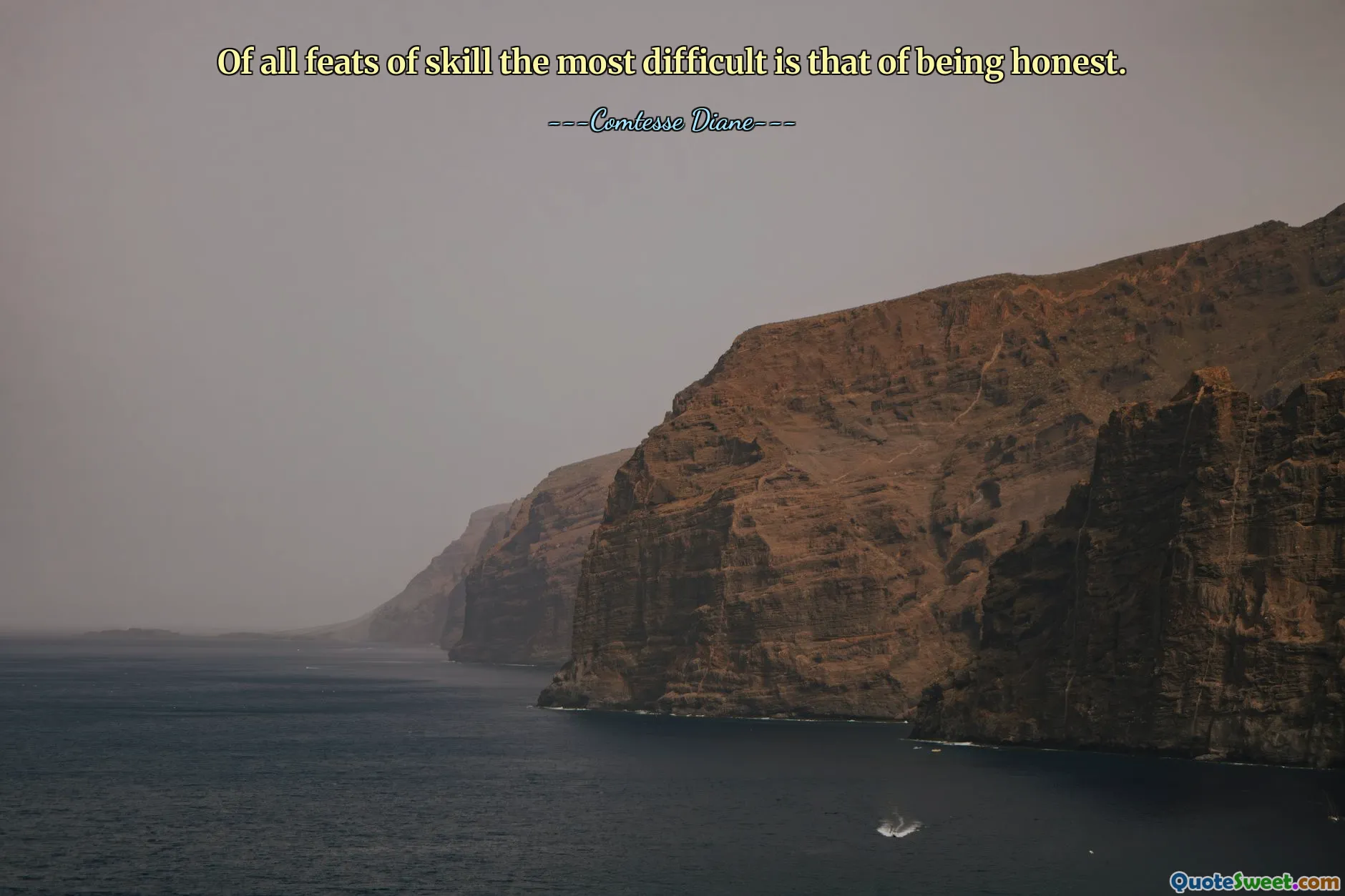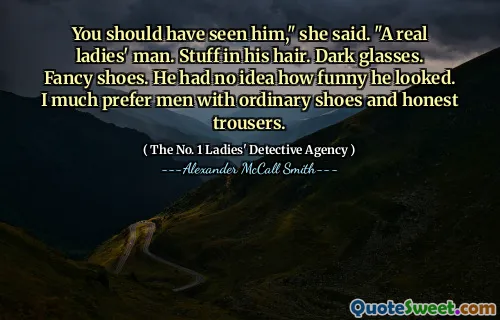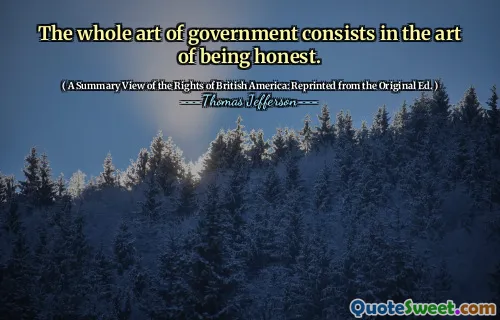
Of all feats of skill the most difficult is that of being honest.
Honesty, often celebrated as a cornerstone of character and trust, is intriguingly described here as the most difficult skill to master. This perspective adds a nuanced layer to how we view honesty—not just as a moral directive but as a profound and challenging practice. The implication here is that being honest is not as simple as it seems on the surface. It requires courage, self-awareness, and often a confrontation with both others and ourselves.
Honesty can be difficult because it exposes vulnerabilities. It can mean revealing truths that might disappoint, dismay, or even anger others. The challenge lies not only in being truthful but in balancing truth with empathy and tact. Furthermore, personal biases, fear of judgment, and social pressures can all push individuals towards dishonesty or half-truths, making honesty a continual moral exercise rather than a one-time decision.
This quote prompts us to recognize that honesty is an active skill that we must cultivate—an ongoing effort to align our words, actions, and beliefs. It celebrates honesty not just as a virtue but as an art, requiring practice and deliberate effort. Importantly, it calls attention to the value of integrity in human interactions, emphasizing that the ability to be honest transforms relationships and builds trust, which are essential foundations for community and understanding.
When viewed through this lens, honesty becomes more than just telling the truth; it is a discipline and one of the highest forms of personal development. It challenges us to reflect on how we communicate and live authentically in a world where honesty isn’t always the easiest path but undoubtedly one of the most rewarding.







